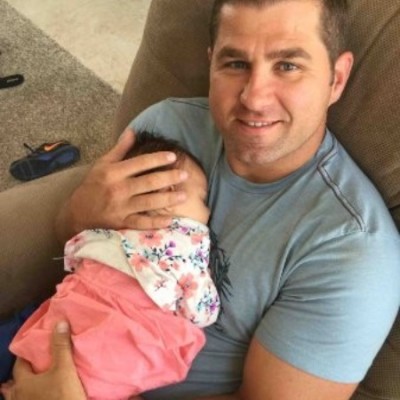Sales in Biorobotics is not only about selling machines. Our mission is to shape the future of healthcare by fostering visionary connections. For this National Salesperson Day, we will be having a special discussion! Ellis Hatchett is here to feed us information about the vision of Biorobotics for sales. She opens up about her day-to-day life as an ASR (Aquablation Sales Rep) in the field of robotic-assisted surgeries, sharing candidly how patience, perseverance, and a visionary mindset are a must in this field. Ellis also shares stories from the operating room, including life-saving procedures and funny mishaps. She debunks the misconceptions around this career and testifies its true challenges and triumphs. Tune in now and explore the intersection of healthcare, technology, and the human touch.
The CE experience for this Podcast is powered by CMEfy – click here to reflect and earn credits: https://earnc.me/tFIlVU
—
Watch the episode here
Listen to the podcast here
Selling The Vision Of Biorobotics As A Sales Rep With Ellis Hatchett
We have with us another special guest. She goes by the name of Ellis Hatchett. Some of you might have heard of aquablation and biorobotics. I know you’re intrigued. You better be because this episode is exciting. Many people are curious about robotics and what’s happening. Here’s an episode where you get to learn all about it. I am not going to spill a single thing. If you want to know what we’re talking about and you want to hear Ellis Hatchett do her thing, then you’re going to have to tune in to this interview. As always, we do our best to bring you guests who are doing things differently in the medical sales space. I do hope you enjoy this interview.
—
Ellis, how are you doing?
Wonderful. How are you?
When people hear robotics, it’s such a sexy term that everybody gets excited and thinks they want to be in it. I love to have you on the show because you’re going to give us the truth about what is robotics. It might still be sexy, but at least they’ll have the reality of what they’ll be getting into if they decide to pursue that career track. Let’s break it down. What exactly is robotics?
It’s a term that has a ton of layers to it, depending on what your robot is accomplishing. In the grand scheme of things, robotics is meant to simplify a complicated task by taking out the human element, which can create some intricacies and not-so-great intricacies. Mainly, it’s supposed to level the playing field when it comes to outcomes.
Do you sell one robot? Do you have a whole plethora of robots? How does it work?
We have one robot. I am a one-trick pony at this point.
With this robot, you said that it comes with its nuances. Give us a little bit of the experience with this robot. What is it like to sell a robot? What’s the scene?
Robotics has this interesting aura about it. You are not only selling a mechanical piece. There’s a structure, something you can put your hands on. The key and where people are successful in robotics is selling a vision because most often a robot of any sort is going to be extremely disruptive. It’s going to be changing the status quo. The key to finding someone who excels and someone who doesn’t is if they can sell a vision, not just a tangible item.
What does that look like in selling the vision of the robot?
You’re going to have to be tactful about it. You’re going to figure out what exactly my robot provides and then you’ve worked backward. This is the outcome that it provides and now, who are the people who work it, run it, and touch it? Get to know that audience and then you work backward. What disease state am I trying to either solve, manipulate, or fix? You then go even deeper into the root cause of that problem that now I’m trying to help fix.
When we’re talking about your robot, what disease state is that covering?
The one I’m selling is BPH Benign Prostatic Hyperplasia.
Let’s talk about it. Did you launch this robot or this robot has been a mainstay when you started selling it?
I wouldn’t say it’s a mainstay. I always joke with people that this robot in particular is in that middle school where braces are on. We’re about to be that beautiful swan-type era. It was already launched when I came on board, but it hasn’t even hit the stride but it will eventually.
That’s what I want to get at. Before we even go there, please let the audience know what type of providers are you working with on a regular basis.
These are urologists.
How do urologists receive the robot? Are the majority of them excited about it or are the majority of them reticent about it?
With any disruptive technology, you’re going to see a bell curve of sorts. You’re going to have certain people in the way that they are wired who want to be first. They are excited about being first. They’re excited about new technology. You’re going to work into the early innovators, but they want someone else to go first, then you work into the, “There’s some good data behind this. I feel safe.” There’s a different level of buyers with any disruptive technology. At this point in the market that I’m in, we’re probably still in the early adopter phase. They still have to be those guys and girls that get excited about something new. They want and they maybe feel empowered by being first to market. We’re in that realm still here in the Carolinas.
You’re in the robotic space. Is there a world where we don’t even need surgeons or urologists anymore? As far as this procedure is concerned, the robot will take care of it all.
I don’t think so, because I think there’s always going to be power in the human consciousness. I am not smart enough to know if that could be replicated, but at this point, the secret sauce to anything is the human experience and the element. It is going to put the cherry on top of something.

I want to understand how your team is set up or even if you have a team. What is it like with your territory? As a sales rep, what’s your title?
I am considered an ASR. I’m the one and only of the Carolinas, but I have counterparts. What we like to call our first team first. These are the people who are considered our pod. The RSRs or the Robotic Sales Reps’ duties are to sell the actual physical robot. I obviously help in doing that. I’m very influential in doing that, but that’s not my sole task. Once the robot is purchased by the hospital, then an ASR like myself, the whole point is not only to solidify that sale but then grow that program to agitate the other markets and be able to hit more patients.
Generally speaking, how easy or hard is this to do?
Robotics or like this specific?
Your specific role as an ASR is the person that’s responsible for the growth of the utilization of that product.
For me, it’s my natural inclination. I’ve done millions of harder things than this. That’s how certain salespeople are bred. You can’t look at your duty as like, “This is hard.” It shouldn’t be exhilarating. It should be fun. It should be difficult at times, but then rewarding in the end. It’s an amazing fun job.
[bctt tweet=” You can’t look at your duty as hard. While this is hard, it should be exhilarating. It should be fun. It should be difficult at times but rewarding at the end.” via=”no”]
In our audience, there are a lot of people who are looking to get into the industry. There are a lot of people who are currently in the industry that are looking to transition to a different industry. Let’s talk about robotics. What are the top characteristics that you would say a person would need to have that are specific to robotics? Let’s start with the positive ones.
Discipline, influence, and perseverance.
Talk to me a little bit more about the influence. What do you mean by that?
I hinted at it a little bit in the earlier part of the conversation. You’re selling something much larger than a product that you have to be able to influence someone’s way of thinking, and that the golden standard that they are currently using or their status quo currently is not sufficient. That takes not only some balls but also some eloquence. That influence piece is you got to be able to move people. However that person in front of you is going to respond, you’ll have to be tactful about that. Influence is huge in this market.
Walk us through a day in the life of an ASR robotics sales rep. From the moment you wake up, what’s happening? Take it all the way to when you get home at night.
Any salesperson probably can relate to this, but once you start dreaming about your day ahead, that’s when you know you lost it in a good way. Right when you wake up, it’s making sure for me that I’ve got my ducks in a row. Not only do I have my family sector that I need to make sure gets taken care of, but at the same time, aligning my to-do list calendar-wise, and making sure I talk to the people that I need to talk to. There’s a piece here that I’d love to stick on for a second. There’s an internal network that you need to create within any business, but you have to have time during your day that you’re fostering those relationships in your internal networks.
That’s more about self-development because you can get lost in the tasks of your job, “I need to go to this hospital by 8:00 AM. I got to call this surgeon at 8:07 because that’s the only time he said he could talk and he’s got 5 minutes to do it, and then I’ve got a meeting at noon. I got to make sure I order that lunch that I didn’t order last night.” Those are tasks that you can get lost in. Those are important, but what else are you doing to create meaningful connections? A lot of that is an internal network that you have to foster and you have to spend time doing that.
Continue walking us through the day.
In the morning, I make sure my calendar is aligned properly with what needs to be done. Looking at, “In the next two weeks, what do I need to do today to make those things happen?” Calling urology offices and hospitals, connecting with my first team first, my robotic sales rep counterparts, “What do you need me doing? I’m in Raleigh today. Do you need me to go to a certain X person’s office to try to get him face-to-face?” It’s a lot of hunting and even if it’s about program development, “I’ve got to meet with the CEO of the hospital today and present on what this robot has done for his patient demographic.” I have that to do, but that stuff you prepared for for a week prior. A lot of it is not the daily things you have to get done. It’s like looking far out and saying, “What do I need to do today to make sure that task in two weeks is successful?
What time do your days normally end?
People who know me well will get a chuckle out of this. I’m one of those rogue late-night email people. You have quiet time and you can meditate on maybe situations or ideas. There are a lot of creative juices that start flowing for me around that time. I don’t expect other people to respond, but it’s me getting it off of my chest. It ends probably around 5:00 when I pick up my kids, but then there’s this resurgence at around 7: 30 when all my creative juices are going wild.
What a blessing to have that. I love it.
Let’s talk a little bit about that. How busy are robotic sales reps? You can speak to the ASR and the sales rep. In robotics, can it be lumped in with things like trauma or is it very elective, and it’s more lumped in with things like some elective surgery that you get to pick and choose? Where does the busyness of robotics sales professionals fall?
In our company, an RSR is my counterpart. She’s going to be as busy as she or he makes themselves because you’re solely hunting to sell a new robot. My role is a mixture of helping to sell that robot, then being the clinical support inside of the OR, and building the program so that more patients are included in this funnel. This procedure in particular is extremely elective. It is 100% elective. Other robots, not much. This one though is electives. It’s not like trauma where you get called, you’re at dinner, and it’s like, “I need you here in two hours.” You know about these procedures probably a few weeks in advance.
—
What are the pitfalls that someone considering getting into robotics can have? If they have these pitfalls, it’s going to be difficult for them in the robotic space.
If you’re an instant gratification person, that’s going to be a pretty hurtful downfall. That’s going to hurt a little bit because when you’re selling something that’s more visionary, think of it as changing someone’s mind that has been set for 50 years. That’s pretty difficult. It takes good time and perseverance. If you’re someone who’s like, “I need that instinct, or that feeling of a win,” I came from the logistics industry before and that was a pretty difficult learning curve for me of like, “You don’t get that feeling of I sold something and I sold that thing like I’ve never sold it before.” It’s a very slow burn and you get to see the benefits of it, but I think that could discourage someone if they’re not given that expectation upfront.

What else?
I don’t know if this is a pitfall per se, but you’ve got to be authentic. If you have a way about you that makes people feel squirmy, there is no place for that inside of an operating room or medical office where there are patients. That’ll be a big downfall. When you walk into that space, whatever that space is, there’s got to be no rattle in your cage. You have to be super authentic.
In robotics, what is the salary range?
Salary-wise, you can get anywhere between maybe $80,000 a year to $150,000. In most sales jobs and any sales job that I would want, the predominant money you’re going to make is in commission
What do the commissions look like?
I would expect that to be double. Whatever your salary is, you want to at least double in commission.
Someone who has a base salary of $150,000 should be earning commissions of around $300,000.
That should be their goal.
Robotics is where you can make that happen.
Most certainly.
From the position of an ASR or is that only as an RSR?
RSRs better be making more than that. If you’re selling a million-dollar robot, you better be making them big bucks. If you’re doing what you’re supposed to be doing in that robotic world or we’re going to call them RSRs, you should be making more than double that salary. In ASR, it’s different because you’re not selling that tangible piece. It’s like a one-time hit. This is a program that you’re building. You may see a little bit less than your RSR counterpart, but I would argue there’s way more longevity on that side.
That’s funny because when you first described ASRS and RSRs, I assumed ASRs is what you do to become an RSR, but the way you described it now with more longevity than ASR, it sounds like two different career tracks completely.
You’ll notice, I’m sure the hiring people can tell what personalities fit into each bucket. I would like to consider myself more of a unicorn. I have a very extreme hunter mentality. That’s why I pair well with my RSRs. I can get a lot done with them, but I’m also the chameleon that can fit into the OR and soften things up. I have the clinical acumen. I have the background to do that. It’s a completely separate career path. One is not better than the other. It’s a very different skillset
You are selling a robot and maybe even think about your customers who may not be excited about the robot but can see the value and the benefit. How are you typically appreciated by accounts? Is it, “You better send her back,” or is it more like, “Ellis is back. Let’s see if we have time?” Are you fighting to even get a time? What’s the scenario?
In my role, the procedure is already on the books in the ORs. I do not only want to come in but I’m needed for the procedure to even work. They most certainly look at you like, “No, we need you in here. Come on in now.” The different conversation is If you’re asking me like, “Is the vibe in a hospital pleasant and upbeat?” Most likely not.
What do you mean?
That’s a whole other combo. As someone who looks to you for some value, you’re definitely valued. I think that’s a fair statement in all the robotic industries.
I’m going to ask you a question and I want you to dig deep. Tell us about a situation where you were in a procedure and you thought to yourself, “This is what I get to do.” If that’s never happened, you can say that too, but if it has, please share.
It’s happened a few times at multiple companies. One of the ones that sticks into my mind is when I was working for Boston Scientific. We were doing what they call an ERCP, which is probably the most complex procedure that a gastroenterologist is going to perform. This was a woman. She was 30-something years old. She was pregnant. She had these stones in her biliary ducts. For anyone who doesn’t know what that is, it’s totally fine, but it isn’t good. You got to get those out. It can be pretty fatal if you don’t.
I remember being in there and not a lot of times do you feel that pressure in certain situations because that’s a personality trait of reps that are in the OR. You don’t get rattled easily, but having that feeling afterward and being successful is what people talk about. I did something that changed someone’s life. Pretty cool. Another story that I hope to share in GI. I stood at the wrong end of the bed on my first colon stent case and I was browned out. That was also a moment where I was like, “This is my job. I need to figure out a better place to stand in this room.”

When that happened, did the office give you that look like, “You shouldn’t have been standing there?”
I’m in the South. There was one nurse in particular who was like, “Bless your heart. You should have known better.” Everyone else was like, “Oh my gosh. Are you okay?” It still sticks with me to this day, but it has imprinted on me.
You mentioned your family earlier. We’re going to switch gears a little bit. How many kids do you have?
I’ve got 2 and I’m expecting my 3rd.
How old are the two?
Four. The little one will be two in November. They’ll all be like two years apart.
You’re in the trenches.
Remember what I said, “My job isn’t that hard compared to other things?”
What I want to say is being a mom of three and having this dynamic position where you can earn a lot and impact patient’s lives, is it relatively easy to manage or do you find it one of the challenging things that you’re always trying to figure out?
Most things that you’ll find in life are totally based on your expectations and your past experiences and how you pull from those past experiences. Have I been in situations in prior positions and life environments that are more difficult than the scheduling conflicts that I have right at work? One hundred percent, but you have to look at it that way. More of the issue is identity friction that happens for females. I experienced this profoundly. So much of my identity was wrapped up in the perception of success in my career. When you have a kid, your priorities have to completely change. That’s my personal opinion and you’re made better for it. That friction of your identity morphing can be pretty soul-rocking.
How did you get through that?
There’s this cool quote Will Smith said, “When your priorities are clear, decisions become easy.” Once I was able to admit, “God is one. Husband is number two. Family is three. Career is four,” all the decisions after that became super easy.
[bctt tweet=”When your priorities are clear, decisions become easy.” via=”no”]
Who would’ve thought you’d be quoting Will Smith?
I got layers.
What I want to ask now is getting to robotics. You had a career where you’ve experienced different roles that ultimately got you here to robotics. Is robotics a green-friendly field or are most people who enter robotics coming from seasoned years of experience in medicine?
It’s dependent on the company where the company is at its maturity level. In the company I’m in, it is a thing for someone to be green. There are associate roles. There are roles that allow you to grow into that career trajectory, but let’s say you were with our company a few years ago, I would argue not. The maturity level of that company in particular isn’t there to be able to protect and cultivate a culture where someone could grow.
Now your company is that. It’s a very green-friendly field. In robotics, it’s green-friendly. You can pretty much command your own time. You make great money. You’re changing patients’ lives and it’s fun. Am I on the right track?
It’s not for everybody. Don’t get me twisted here. A lot of this is internal work. It’s demanding your willingness to stand firm in conviction of your product and the vision that the company has. That’s not for the faint of heart. That’s most certainly true. When it comes to sales roles in general, the medical device realm is a great place to have that seesaw. I don’t even say it’s a work-life balance because it’ll never be that, but it’s a seesaw like one day I’m going heavy on work. The next day I may be going heavy on family and it’s going to be this never-ending seesaw effect. It can support people who are looking for a little bit of this and a little bit of that. You have to put your time in to be successful at it.
There are many prose of wisdom you dropped on us. We’re going to switch gears one more time and we’re going to do the lightning round. I’m going to ask you four questions. Are you ready?
I’m as ready as I’ll ever be.
Before we jump to the lightning round, is there anything else you want to share with our audience?
I would love to share a little bit more about it doesn’t have to be this straight path. When I graduated college, I was the normal college grad. I switched majors an ungodly amount of times. I saw medical device as this pedestal job that I wanted to get into, but my path was all over the place in between that to this. The key for me is people have to be able to not only identify life experiences that they’ve had that they can then utilize in the workspace, but you have to be able to eloquently talk about them. If you cannot express how your life experiences connect to the business world, people aren’t even going to ever be able to see your potential.
[bctt tweet=”If you cannot express how your life experiences can connect to the business world people aren’t even going to ever be able to see your potential.” via=”no”]
I want to make sure that’s super clear that even if you don’t get into robotics right away and you take other jobs, start documenting, “That specific example or that sale that I was able to accomplish, if med device is my end game, how am I going to talk about that and relate it that so that in the med device interview process, I can create a connection there?” Something people need to get better at is telling their own story.
That’s exactly what we do. I love the fact that you mentioned that. Ready for the lightning round?
Here we go.
First question, what is the best book you’ve read in the last six months?
Best movie or TV show you’ve seen in the last six months?
I watch a lot of Disney movies. I watched The Guardians of the Galaxy, the last one.
Best meal you’ve had in the last six months?
My husband was a chef for fifteen years. Every night, I get an amazing meal. What he made the other night was a chicken breast that had cooked Parmesan cheese on top with roasted tomatoes and spinach falling off the side. He had this mango risotto with it.
Can we get the recipe?
Yes.
The last question. What’s the best experience you’ve had in the last six months?
This may hit home for all parents out there. Seeing my kids do something difficult that they have verbalized that they cannot do, stewarding them to complete the task, and the look on their faces when they realize they can do hard things are some of the coolest experiences anyone can ever have.
It was wonderful having you on the show. We can’t wait to see all the wonderful things you’ll do with your career. Thank you again for spending time on the show.
Thank you so much. It’s been a pleasure.
—
That was Ellis Hatchett. Fantastic stuff. Many of you who have tuned in to this episode or interview thought to yourself, “I want to do what Ellis Hatchett is doing. Where do I go? How do I get there? Show me the way.” I encourage you to visit EvolveYourSuccess.com. There, you’re going to learn how you can become exactly what Ellis is. You’re going to go to the website. You’re going to fill out an application. You’re going to give us information. You’re going to schedule a time with one of our account executives and have a conversation that can change your life.
That’s how we see it here at Evolve Success. We are in the business of changing lives. We happen to be doing it through the opportunities within medical sales careers. If you’re tuning in to this, I know you’re either someone who’s in or someone who wants to be. There should be no reason that you’re someone who wants to be when there’s a resource like this out there. As always, we do our best to bring you guests who are doing things differently in the medical sales space. Make sure you tune in for another episode.
Important Links
- Ellis Hatchett – LinkedIn
- The Alchemist
About Ellis Hatchett
 Born and raised outside of Chicago, IL. Graduated from UWW bachelors in persuasive communication & business law. Started masters in Clinical Nutrition in 2021. Got my CNA license in high school to pay for college and got a real hands on experience in healthcare. Started career in sports marketing moved to logistics and now in medtech. Was able to bridge my love for science which constantly is retrospective asking itself “is there a better way” and my intuitive nature with the human experience. 2 kids with 1 on the way and an amazing husband living in Charlotte, NC. Also danced for the Chicago Bulls right out of college.
Born and raised outside of Chicago, IL. Graduated from UWW bachelors in persuasive communication & business law. Started masters in Clinical Nutrition in 2021. Got my CNA license in high school to pay for college and got a real hands on experience in healthcare. Started career in sports marketing moved to logistics and now in medtech. Was able to bridge my love for science which constantly is retrospective asking itself “is there a better way” and my intuitive nature with the human experience. 2 kids with 1 on the way and an amazing husband living in Charlotte, NC. Also danced for the Chicago Bulls right out of college.
Love the show? Subscribe, rate, review, and share!
Join the Medical Sales Podcast Community today:



























































































